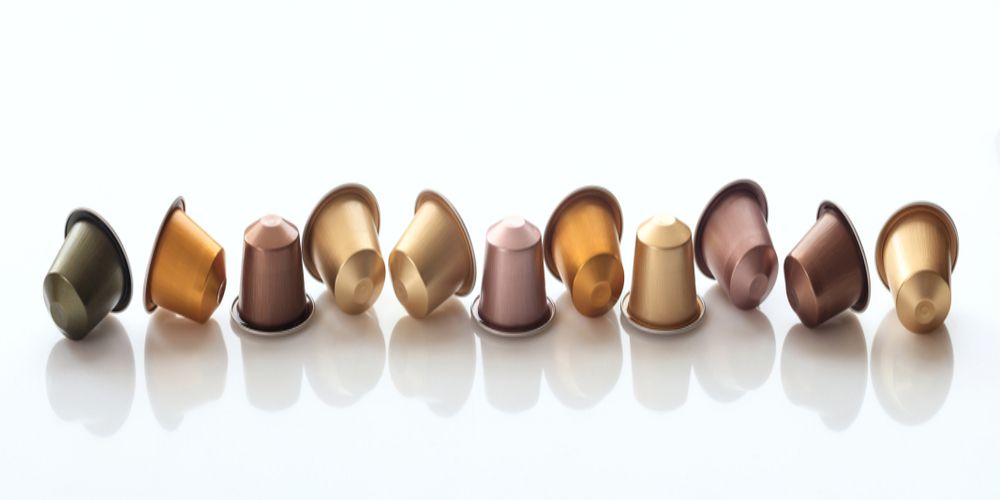Coffee has been around longer than most of its current drinkers and far longer than the argument about coffee pods vs. ground coffee. Now, right next to water, tea, soda and, coffee is one of the most widely consumed beverages.
Because of this popularity, people keep coming up with multiple ways to grow, prepare, and drink coffee. In terms of preparation, some people use coffee pods. Others are a tad more comfortable with the traditional ground coffee.
As a budding coffee enthusiast who has to choose between coffee pods and ground coffee, you may get confused. This is especially so considering the arguments for and against both types of coffee.
Not to worry, though. In this article, we'll be breaking it all down in a detailed comparison of the two. In the end, you'll have no doubt as to which comes out on top in the coffee pods vs. ground coffee debate.
Coffee Pods: What Is It?
Coffee pods are essentially a method of preparing single-serve coffee. The coffee pod itself is a (cup-like) container with coffee sealed inside of it. The size of the container itself depends on how much coffee it is supposed to contain.
However, on average, the containers traditionally measure around 60mm. Within that tiny space, they can carry up to 12grams of coffee to be brewed. In essence, coffee pods function very much like teabags. They often come in different flavours and roasts while offering a truckload of convenience in preparation.
Brief History of Coffee Pods
Coffee pods have been a pretty exciting concept for many coffee lovers since its inception. However, it is a tad difficult to determine the exact date it hit the market.
Still, multiple resources confirm that coffee pods have been around since the late 1900s. Due to the growing demand for the product, there was a need to produce a significantly large amount of it. Indeed, only a handful of companies dominated the market at the time. Still, between themselves, they rose to the task and produced several million coffee pods in different sizes to meet different customer requirements.
What Is Ground Coffee?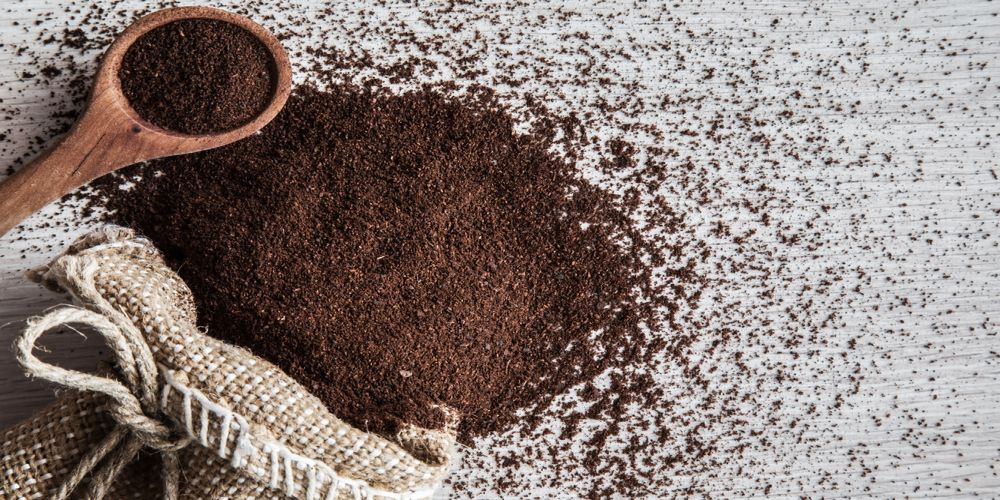
If you're going to dissolve something in water eventually, it will be pretty smart to grind it into a powder fast. It helps to quicken the dissolving process and moves your meal along much quicker. This is the exact principle behind ground coffee.
This type of coffee is much older than coffee pods, and it is certainly much more traditional. Ground coffee, as the name implies, is the type of coffee that's grounded to a fine powder. Much like granulated sugar, the purpose is to help it brew faster.
Related article: How to Save the Planet When You Recycle Coffee Pods?
For the sake of this conversation, you should know that many people have different methods of creating their ground coffee. These methods are basically the level of fineness they will allow their ground coffee to get to before brewing it. They include:
- Very fine and almost powdery
- Medium fine
- Medium coarse
- Coarse
Above all these, you should know that ground coffee isn't instant coffee. It may look or smell similar. But, in reality, it's quite different.
A Brief History of Ground Coffee
Its existence dates back several years ago in Ethiopia. Then, and at different points in history, it was considered a luxury. So much so that some people stole it from royals so that they could have their share without having to spend their entire life's income on it.
In other parts of the world like Mecca, things took a slightly different turn. You see, people were still new to the stimulating effects of coffee. To them, drinking coffee must've been the equivalent of taking a dose of methamphetamine. So, it was banned in certain areas. Still, people smuggled it across different parts of the world to have a drink.
Of course, the story is much longer and could very well stretch into an entire book. But, if we were to summarize it, we'd say ground coffee has had a rocky but exciting start in the world.
Features of Coffee Pods
If you must know which is the best between coffee pods vs. ground coffee, you must thoroughly understand both concepts. Here, we'll give you a detailed explanation about coffee pods, its features, advantages, preparation modes, etc.
Even before reading this piece about coffee pods vs. ground coffee, you've probably seen that coffee pods are incredibly simple in their design. But, beyond that, there are other features of this tiny container. A few of them are:
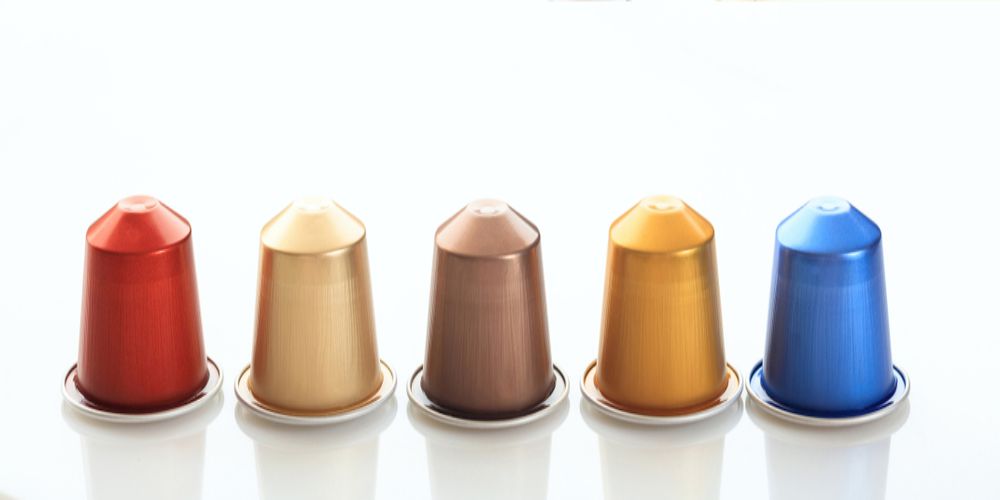
Single-serve
As we said, it functions in the same way as a teabag. You'll take it out of the pack, brew it, drink your beverage, and that's the end of the pod. More often than not, you don't get to use the same pod for coffee twice.
This peculiar feature guarantees freshness. You can rest assured knowing your coffee will always have that nice brewing smell every time you pick up a new pod.
Small sizes
There's only so much coffee a person can take. Every single brewing company and coffee-related merchant knows this. Even if they sell you large quantities, it's often so that you can consume it little by little over extended periods. As such, a single-serve type of coffee like this doesn't come in large sizes.
More often than not, it measures a mere 60mm, holding only a few grams of coffee. Some may think about this as a bad thing. But, in reality, it allows you to get just what you need and move on. The last thing you want is to spend your entire day feeling jittery because your coffee pod gave you a "caffeine overdose."
Porous container
Unless you're more interested in plastic coffee capsules, you're likely to come across this feature. The holes in the coffee pod will not be so glaring that you can stick a needle in them. But, they'll be evident.
One of the reasons behind this feature is to allow water to pass through the pod easily while brewing. Another reason is for sufficient amounts of air to get in before the pod is used. This helps to prevent premature moisture buildup.
How To Make Coffee Pods
Typically, you can use two methods to make coffee pods into coffee – manually and using a machine. More often than not, people decide to go with the latter.
Manually
This is pretty simple because the coffee has been ground up for you already. So, just open the coffee pod or capsule. You can use a knife or just a pair of scissors. When that's done, empty the content into a cup that you'll fill with hot water immediately afterwards. Having poured water inside, wait a few seconds for it to brew and voila! You're good to go.
With a machine
There are many different machines you can use to make coffee pods into a nice cup of coffee. Many of them have their specific methods of operation and requirements.
To use them, you'd have to read the specific instructions that come with the coffee maker. However, you must remember that your water should be hot enough to brew your coffee.
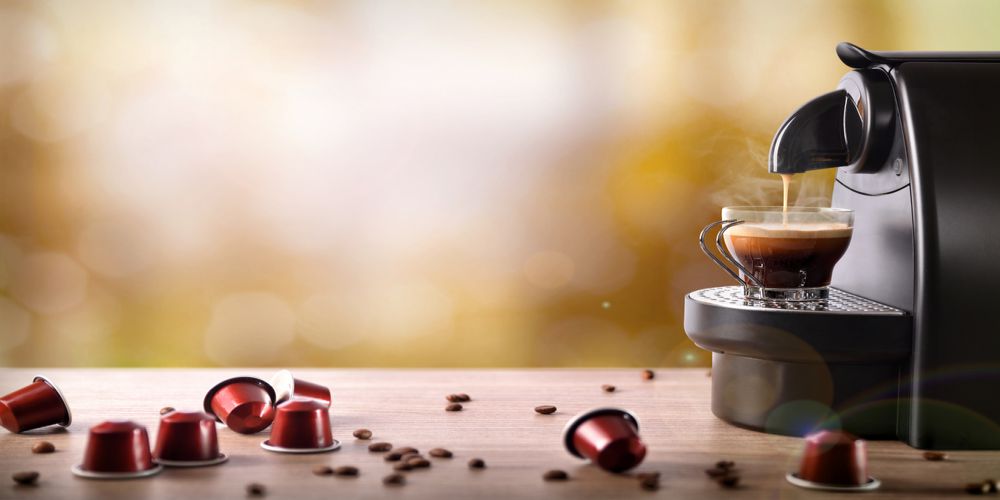
Advantages of Coffee Pods
The coffee pods vs. ground coffee argument isn't complete if you don't look at the good stuff both sides have to offer. These are some of the advantages you'll get from using coffee pods to make your coffee:
Coffee pods make great coffee without the need for extra training
Coffee is a great way to get your day started. For many people, that extra caffeine boost can't be traded for anything. However, for something so important, it can be a tad difficult to make. This is especially so when you're making coffee for commercial purposes and cannot afford to make any mistakes.
For example, you need to know just when to grind your coffee beans. Alongside that, you must be careful not to tamp your coffee with the wrong amount of pressure. When all that's done, you need to learn how to properly operate your espresso machine, assuming you're using one. In all honesty, it's all just a lot of hard work.
The best thing about coffee pods is that it allows you to make great coffee without going through all this stress. You already have perfectly ground up coffee, and you certainly don't need to worry about tamping. All you have to do is slide in the pod, and voila! You've got a great cup of coffee on your hands.
Coffee pods leave almost no mess behind
You see, with traditional coffee-making methods, you'd have quite an amount of liquids to clean up when you're done brewing. But, one thing that gives coffee pods the advantage in the coffee pods vs. ground coffee argument is its ability to leave little to no mess.
All you need to do is to ensure that the container has a sufficient amount of water. Afterwards, you'll insert the coffee pod and click the button. The coffee you need will be contained within the coffee pod. As such, there are zero spillages, tamping, emptying, or even coffee grinds to be cleaned up after the process — just good coffee and a clean counter.
Coffee pods stay fresh much longer than others
This is yet another advantage for coffee pods in the coffee pods vs. ground coffee discourse. You see, coffee pods have their grinds safely stored inside a container. The container does offer a significant level of protection. So, you can rest assured that your coffee flavour and aroma are going nowhere.
This is the direct opposite of traditional coffee-making methods. These ones start to lose their taste and aroma as soon as you begin to use them. The worst part is that it will happen even if you try to slow the process by using airtight cans.
They save you a lot of time in preparation
With coffee pods or capsules, you wouldn't have to waste several minutes trying to get one cup of coffee ready. If you buy coffee pods in Canada and you have a great coffee making machine, you should be getting a great cup of coffee in less than three minutes.
Unfortunately, with regular methods, this isn't quite the case. You see, you'll need to grind the coffee beans first. Afterwards, you have to measure accurately, or you risk making your coffee distasteful. When all that's done, the tamping begins.
Even if you have your coffee ground up beforehand, you'll still need to take care of the remaining two processes. These can swallow up some of your time. So, if you're thinking of a reason why you should choose coffee pods, there you have it!
They are consistent

When you use other "manual" methods of making coffee, there's the possibility that you'll make mistakes. You may grind your beans a little too hard, making the grains finer than they should be. You may add just a little too much water, and these are only a few of the things that can go wrong. When any of these things happen, the coffee taste will inevitably change.
Thankfully, this isn't a problem for coffee pods. The beans are ground consistently to provide the same texture. Alongside that, the right amount of ingredients is always put in to ensure the flavour comes out the same. There is virtually no risk of inconsistency in taste.
Disadvantages of Coffee Pods
A closer look at coffee pods shows that the advantages far outweigh the disadvantages. To make sure you have all the information you need, here are a few cons of using coffee pods:
There is the tendency to dispose improperly
This is one of the main problems associated with coffee pods. Now, some brands make their pods easily recyclable. All you need to do is put it in the right place for collection, and you'd be doing your part to protect the earth. Others make their biodegradable. That is, they can be used as compost.
However, despite this, there's still a broad tendency to dispose of coffee pods improperly. Indeed, you can hardly go wrong with biodegradables. But, many people skip out on the process of recycling because they find it stressful. For this reason, many people tend to think that coffee pods are bad for the earth.
Spoiler alert – they don't have to be. We'll give you the gist of that later.
There are a few limitations of use
To make coffee with coffee pods, you'll probably use a machine. However, by doing so, you'll be exposing yourself to a slight limitation. This is because certain machines only work with specific coffee pod/capsule sizes.
Anything larger than that and you wouldn't get what you want. By all means, this can be a tad limiting. But, in reality, it just means you need to be more careful in your machine selection process.
Features of Ground Coffee
Having conducted a thorough analysis of coffee pods, it's time to talk about ground coffee. After all, it wouldn't be a coffee pods vs. ground coffee argument if one side is biased over the other.
Requires training
This is especially so if you're running a coffee shop as you cannot afford to make mistakes. You need to learn and understand just how to make your coffee. Among others, you'll need to learn how to grind and roast coffee beans perfectly.
Apart from that, you must know the right pressure for tamping and everything else in between. If you can master these, you'll be able to put out great coffee with good consistency.
Reusable
You can use ground coffee more than once if you really need to. Of course, the second round may lose some flavour and caffeine content. But, it is still very drinkable with virtually no health risks.
How To Make Ground Coffee
You should note that the methods here are very similar to those of coffee pods.
Manual preparation
The first step is to grind your beans to the appropriate texture. You can use a machine to do this, or you can go old school. As soon as that's done, empty the content into a cup and pour a satisfactory amount of hot water into it. Just like that, you have your coffee ready.
Machine preparation
Much like coffee pods, ground coffee machines have specific modus operandi. To fully understand, it's best if you read the instructions first.
Advantages of Ground Coffee
Here are the advantages of using ground coffee:
It poses no danger to the environment
This is one of the major differences between coffee pods and ground coffee. Ground coffee is naturally biodegradable. So, even if you throw it out, it will just become one with nature again. This particular advantage takes away the stress of having to recycle that some other methods might bring.
Low cost
Ground coffee is usually very cheap to acquire. This is largely because they don't need to put a lot of effort into packaging. This is especially if you're grinding your beans yourself instead of buying already ground up beans.
Multifunctional
Apart from drinking it, there are so many other things you can do with coffee grounds. You can use it in your garden, fireplace, and even as part of your skincare routine. The possibilities are nearly endless.
Disadvantages of Ground Coffee
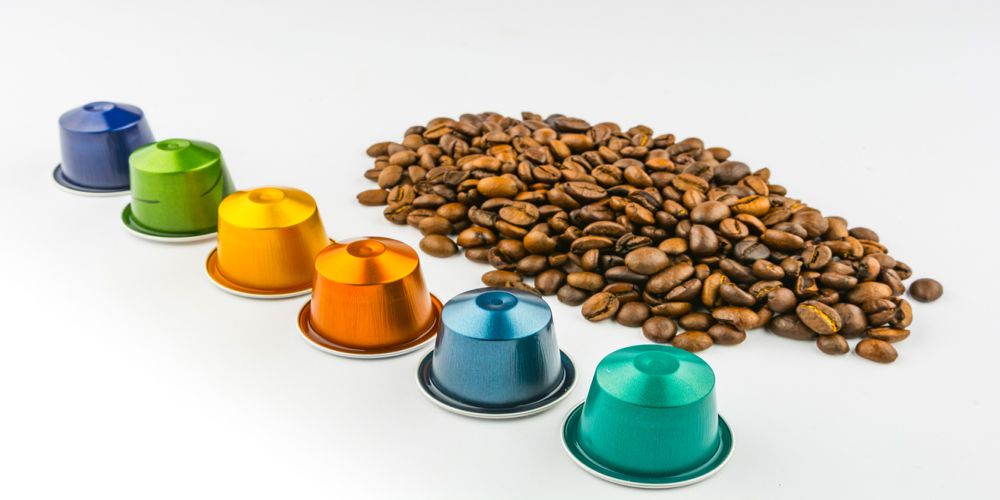
Here are some cons to using ground coffee
Requires effort
This peculiar feature puts ground coffee a point behind its competitor in the argument about coffee pods vs. ground coffee. Nevertheless, to make ground coffee by yourself, you need to first determine the texture you want. If you're making for just yourself, this is easy enough. If you need to make for customers, things get a tad more complicated.
We don't expect that you'll only use your hands to grind if you run a business. But, even with a machine, you still need to time it correctly to get the texture just right. All this is before you begin making the coffee, which is another process on its own.
There's a strong tendency of inconsistency in taste
As we mentioned in the upper part of our coffee pods vs. ground coffee argument, this isn't a problem for coffee pods. But, it's something ground coffee has to deal with. Because you measure all the ingredients yourself, you might mix them inconsistently at some point, causing a difference in taste.
Final verdict: Which is The Best?
It's time to settle the coffee pods vs. ground coffee argument once and for all. Given the sheer number of advantages that coffee pods have over ground coffee, pods are the clear winner. Indeed, it has its disadvantages too, like the danger to the environment. But, as we said before, there's an easy way to control that problem. This is not to say that ground coffee is a complete writeoff. But, coffee pods still take the lead in more ways than one.
How to Reduce Damage to the Environment When Using Coffee Pods
At a point, coffee pods/capsules were largely created without much thought to their environmental impact. During that period, capsules were made of aluminum with no recycling outlet and people were much too spent to do it themselves. However, things are much different now.
With aluminum coffee capsules, you can now send back aluminum containers to companies after use. They'll recycle, and you can rest assured you've not damaged the earth.
With biodegradable pods, you can simply make a conscious effort to dispose correctly. It will turn into compost anyway, and there'll be no harm done. So, you see, coffee pods aren't exactly demons from the pit of environmental pollution.
FAQs About Using Coffee Pods
Below are answers to some frequently asked questions about coffee pods
Q1: How long does it take coffee pods to break down?
This is largely dependent on the type of coffee pod used. Some biodegradable pods can take as much as two years. Others can take less than that. The ones made of plastic or aluminum can take up between 150 – 500 years.
Q2: Is it possible to grow coffee in your backyard?
Yes, it is possible. However, it will require some effort and diligence.
Q3: Are coffee pod machines worth it?
Yes, they are. You merely need to be careful to ensure that you choose the right one. Otherwise, you risk not getting the value for your money.
Q4: How long can you store pods for?
On average, you should be able to store coffee pods for up to six months.
In Conclusion
Coffee pods vs. ground coffee is an argument that's lasted quite a while among coffee enthusiasts. Some prefer the modern touch, and some prefer the old school way. The latter has its advantages.
There's no doubt about that. But, the former trumps those advantages with a fair amount of ease. After doing all that reading, the chances are that you could use a cup of coffee. We know we can.
In lieu of that, check out our online store for coffee pods. Here, at Invigo Coffee, we offer a wide variety of flavours for your enjoyment. More importantly, we offer smooth, seamless online transactions.
Related article: How to Save Money on Coffee with Coffee Pods?

